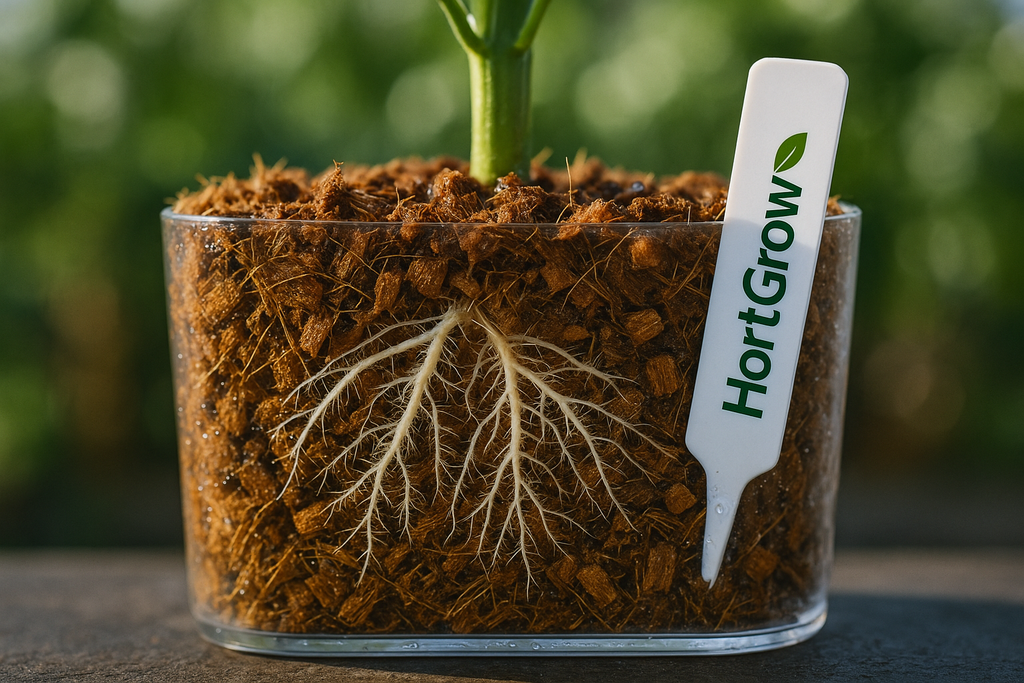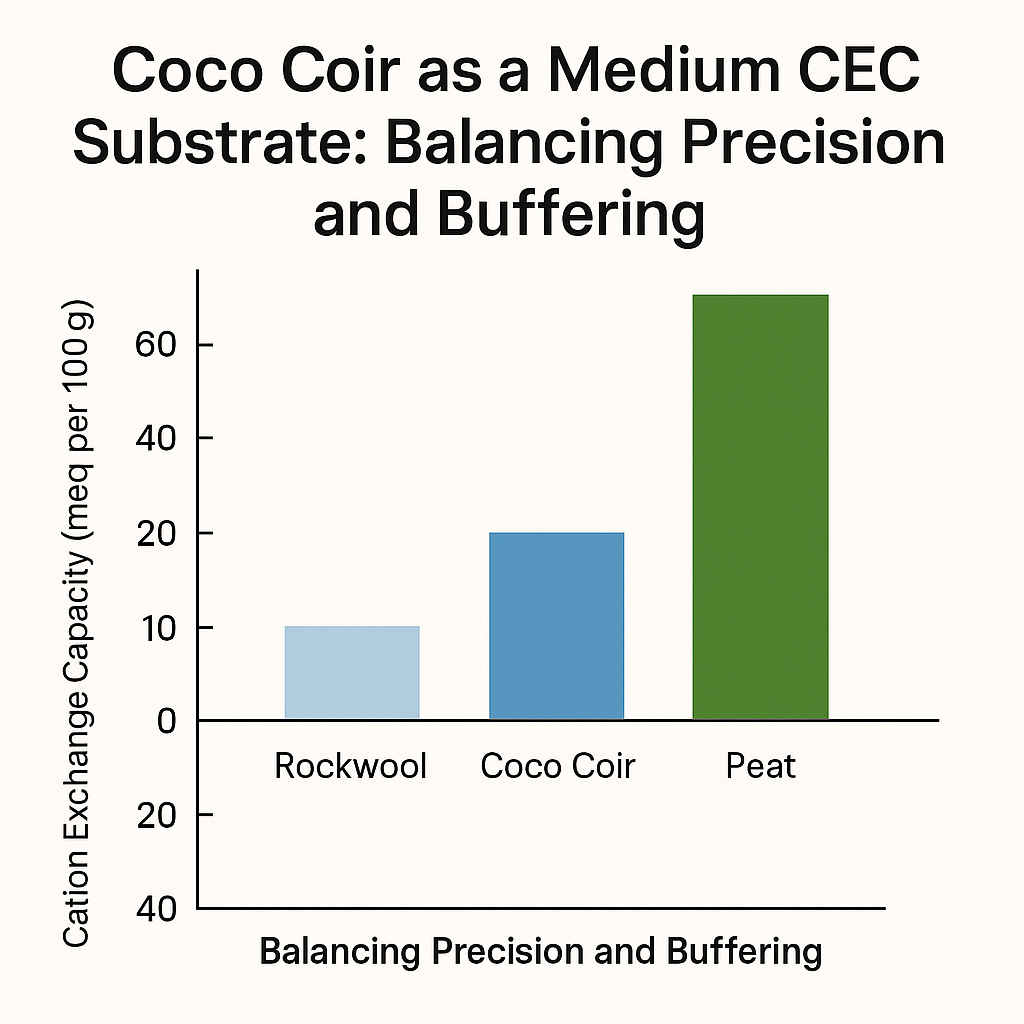Best Practices: pH Management in Coco Coir

pH management in coco coir is easy and straightforward, compared to other growing substrates. Coco coir is naturally pH neutral, and has a similar cation and anion exchange, and will therefore maintain pH without an added buffer, even with strong acidic fertilizer solutions applied.
Peat based substrates are naturally acidic and require chemical buffers, such as lime. And in order for those buffers to not rinse out, they are often applied in insoluble or semi-soluble compounds. This creates complications in the root zone, and requires additional inputs beyond just a soluble nutrient solution. And even in this case, a high amount of runoff may rinse away these buffers, leaving the grower susceptible to large pH swings and potential deficiencies.
Likewise, rockwool or stonewool substrates come from alkaline materials and require pH conditioning when hydrated to combat their high pH. Oftentimes, multiple applications of acid solutions need to be applied for plants to thrive.
Coco coir stays pH stable and minimally degrades when acidic nutrient solutions are continually applied. Many facilities will reuse coco coir due to its great stability and pH balance.
As coco coir degrades, its structure doesn’t get compromised easily, still allowing for oxygen to the roots. Coco coir will also slowly release K+ ions, which in addition to providing free nutrients to the roots, also helps stabilize pH naturally.
Growers using well balanced soluble nutrient solutions in coco coir rarely have to rigorously monitor and adjust pH, as they would have to in other substrates, even with high runoff growing methods. Plants taking up a healthy balance of N, P, K, and Calcium will maintain a healthy root zone pH in coco coir, so much so that some growers never bother to adjust pH.

Following best practices, a healthy balanced nutrient solution for coco coir should be high in calcium (~200-250 mg/L), low in phosphorus (~30-90 mg/L), and well balanced in potassium (180-330 mg/L), depending on the life stage of the plant. Given these conditions and clean source water, the nutrient solution pH can be anywhere from 5.4 to 6.5 pH, although 5.7-6.1 is preferred.
The biggest setback for pH management in any kind of hydroponic growing can be the source water. Well water, or highly alkaline water will almost certainly cause pH problems in any growing media. These issues should be analyzed and addressed by the grower before proceeding with other troubleshooting.
Optionally, rootzone and runoff pH can be measured using instruments, and if anything is out of balance it is usually due to either excessive drydown and/or over fertilization, or in some cases, over feeding of phosphorus or potassium, or both. This would be the case for any growing substrate, however as previously discussed, no additional inputs for buffering of the substrate would be required.
In conclusion, coco coir is an ideal growing substrate due to its natural pH neutrality and stability. Unlike other substrates, it doesn't require chemical buffers or pH conditioning, making pH management simpler. Coco coir maintains structure and releases beneficial K+ ions, supporting healthy root zones with minimal pH adjustments. By using a balanced nutrient solution and addressing source water quality, growers can achieve optimal conditions without frequent pH monitoring. Overall, coco coir's ease of use and efficiency make it a preferred choice for hydroponic cultivation.





